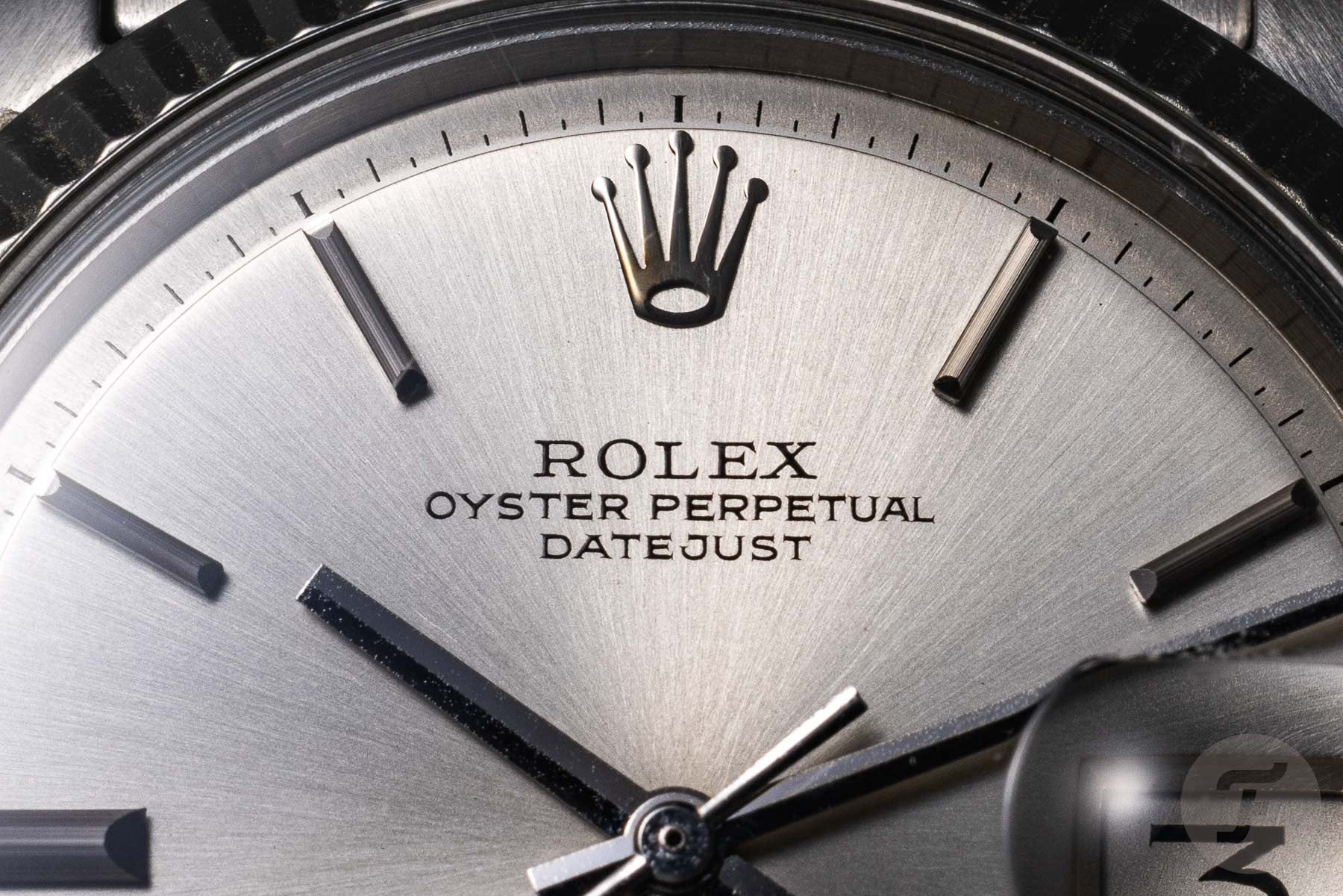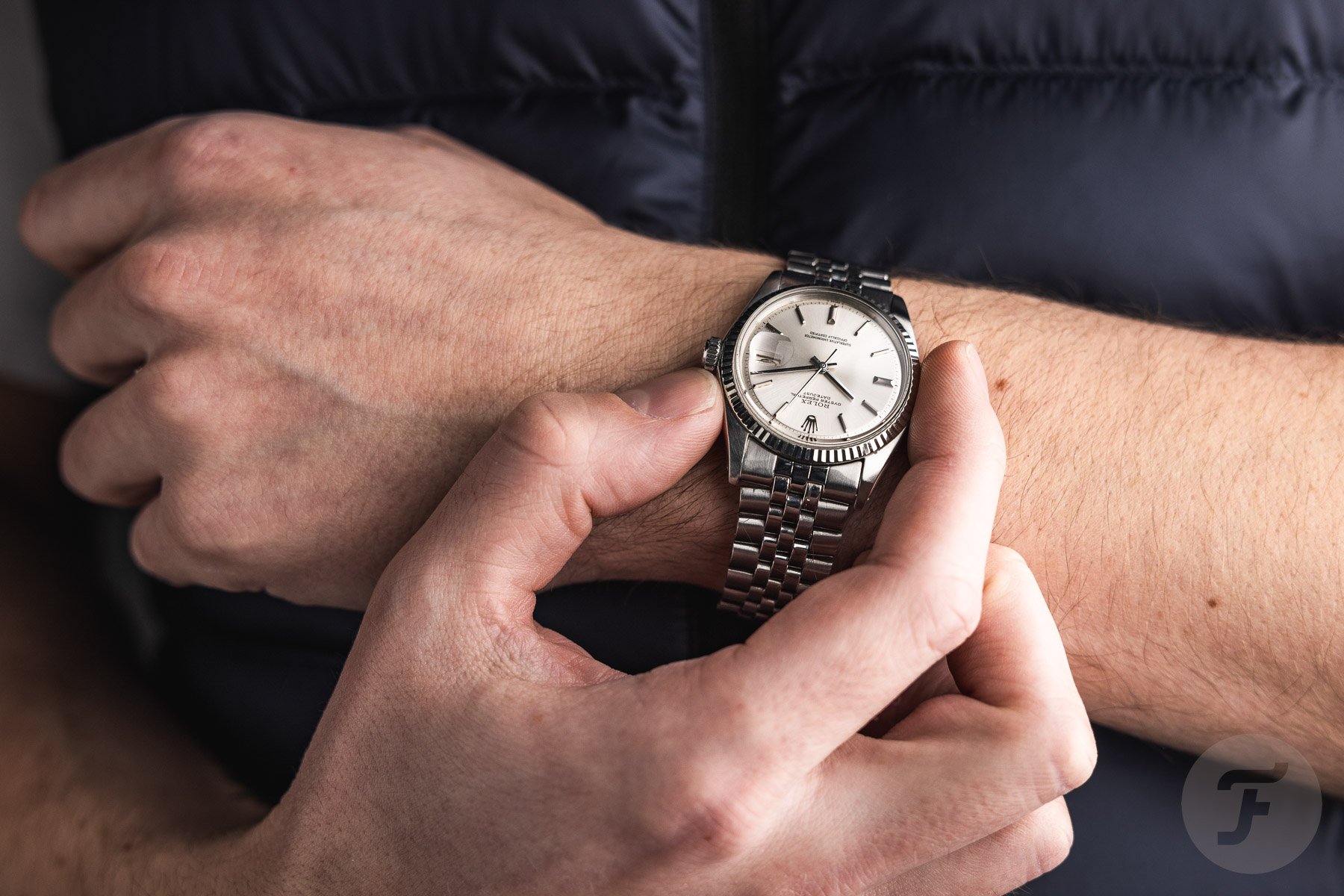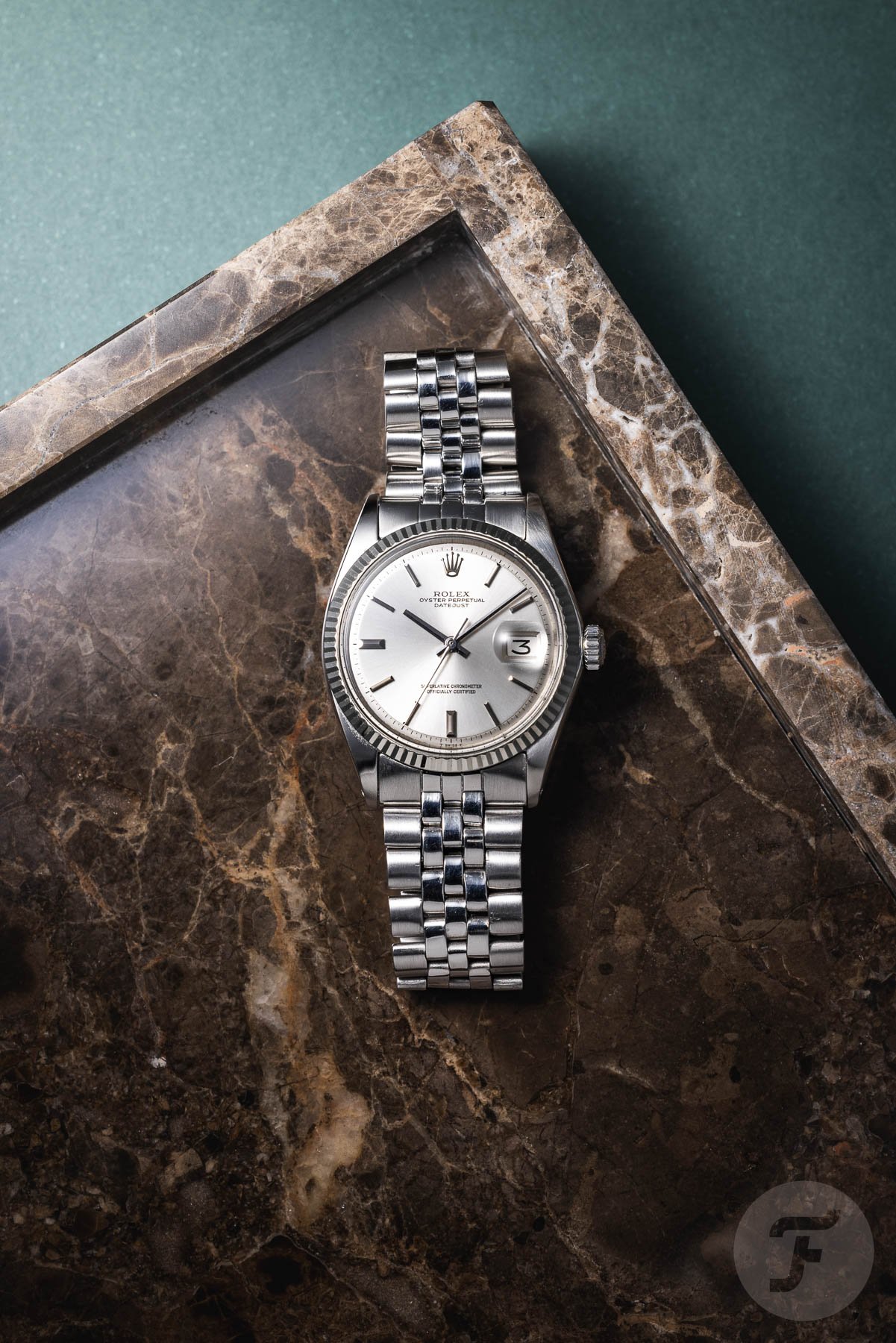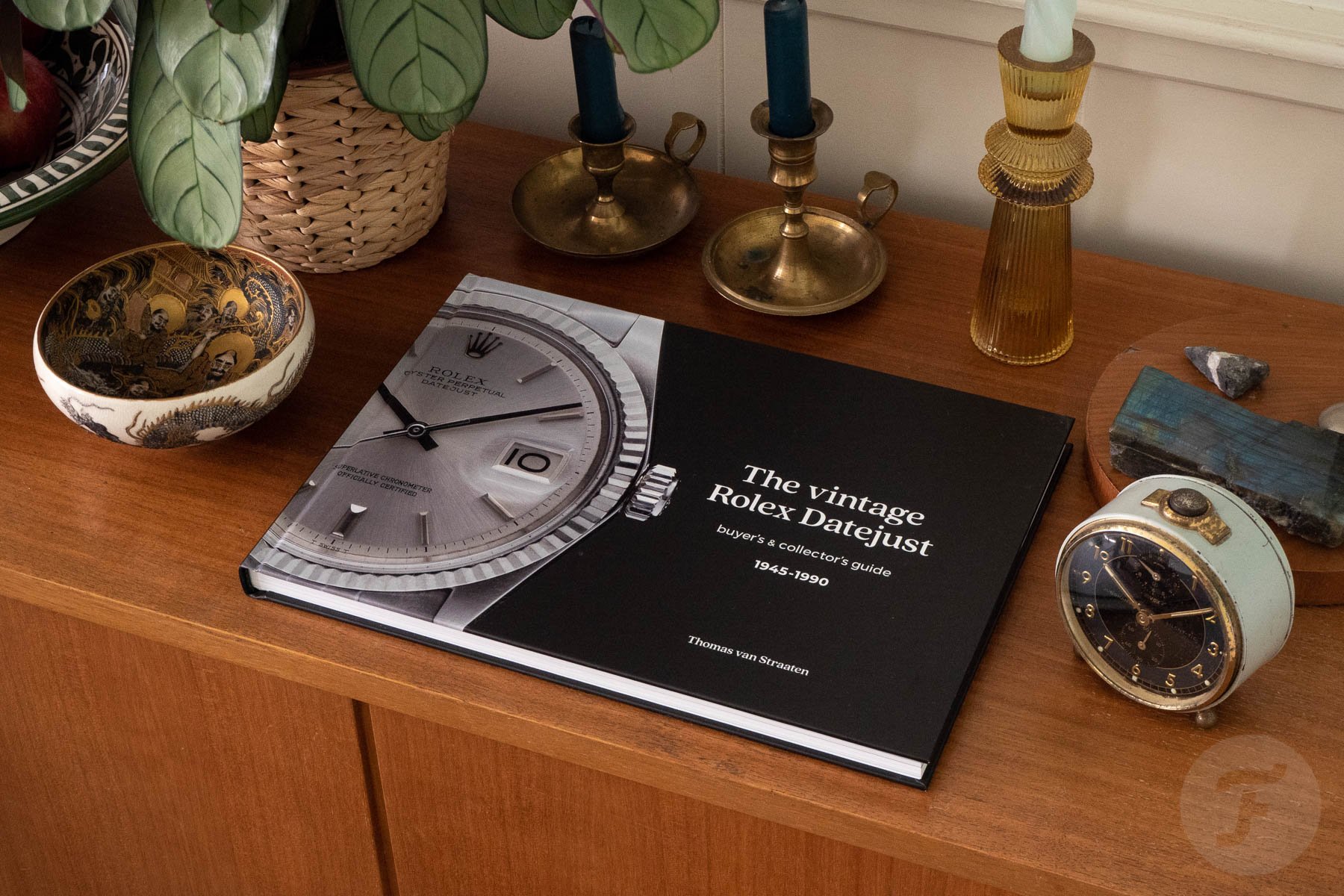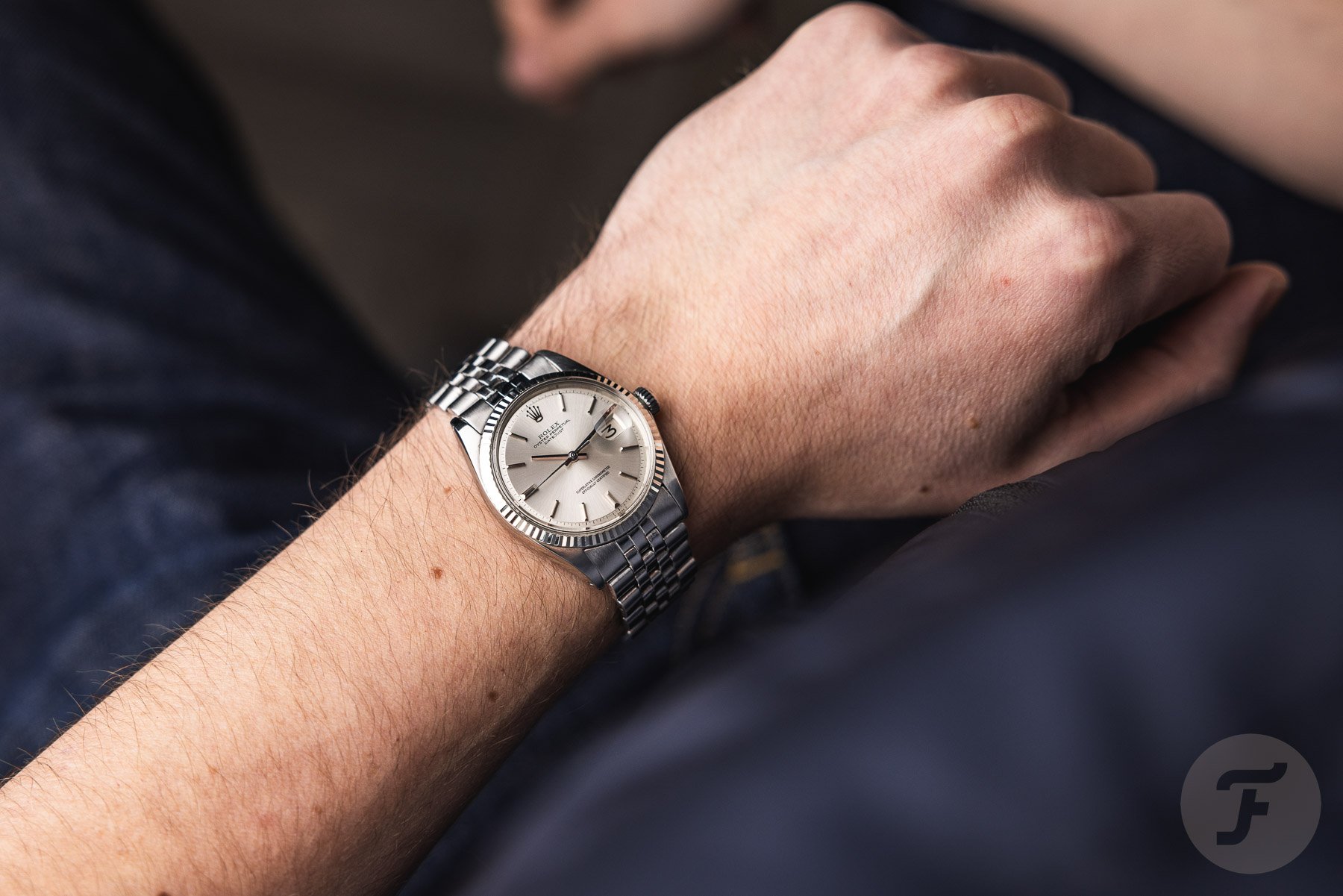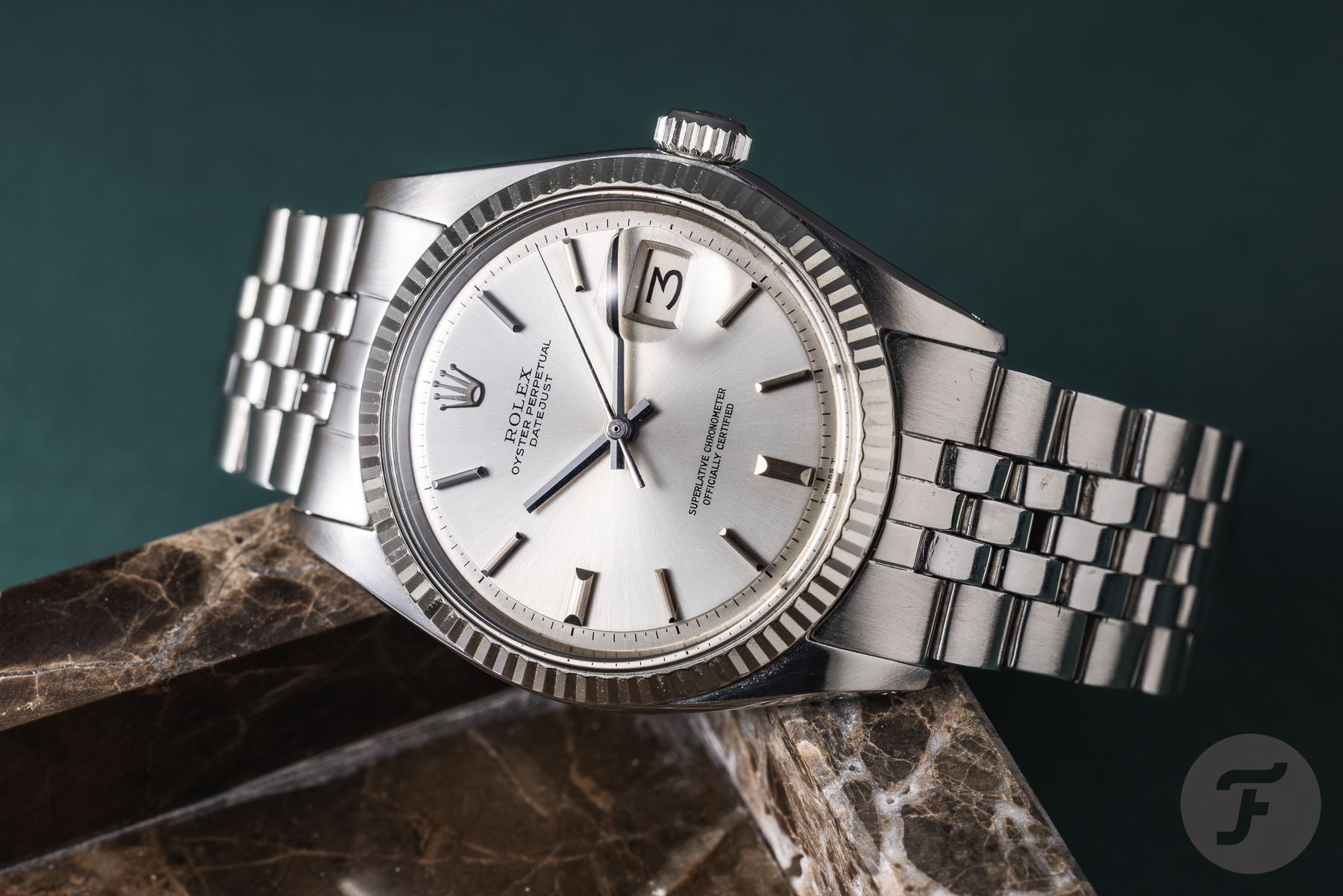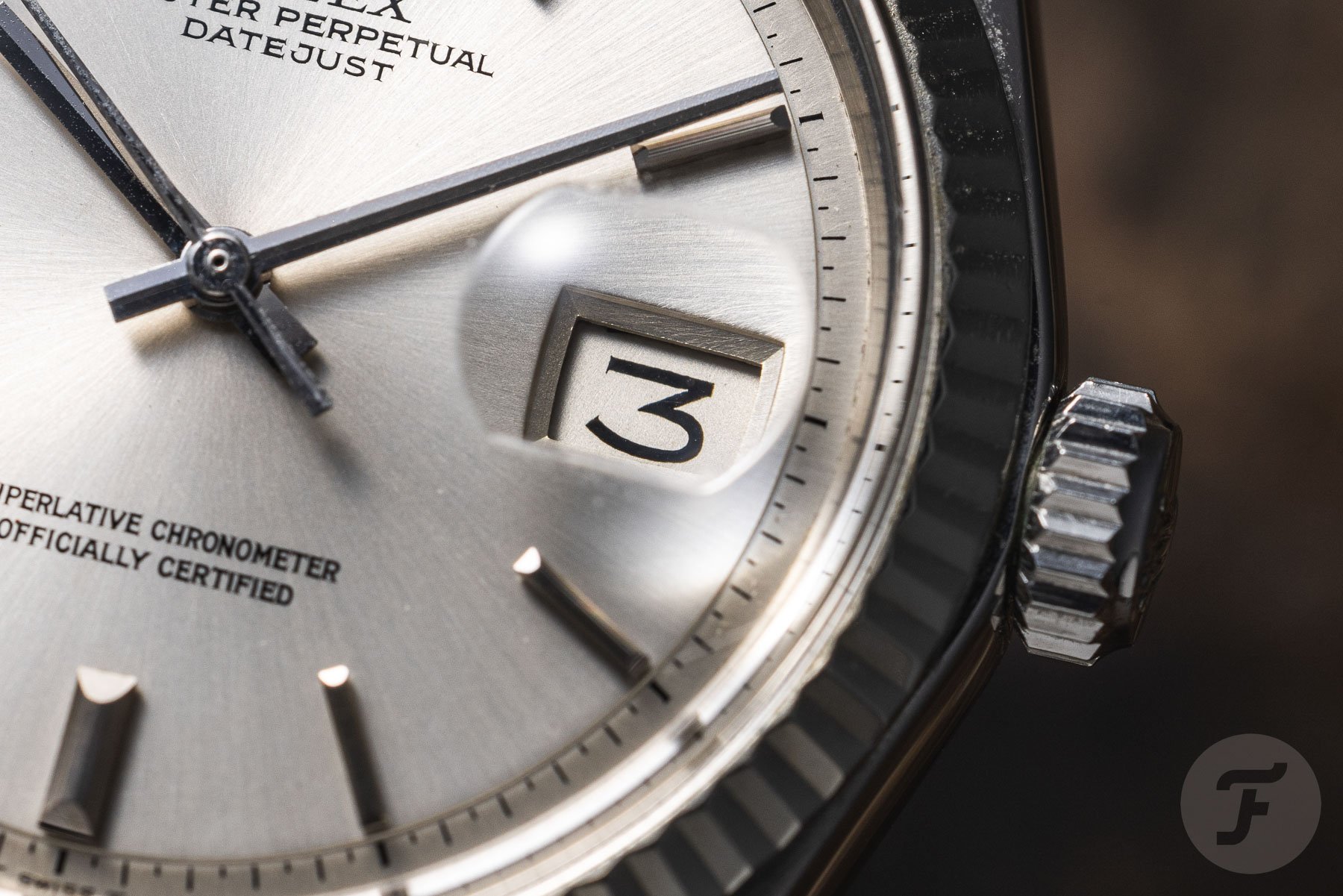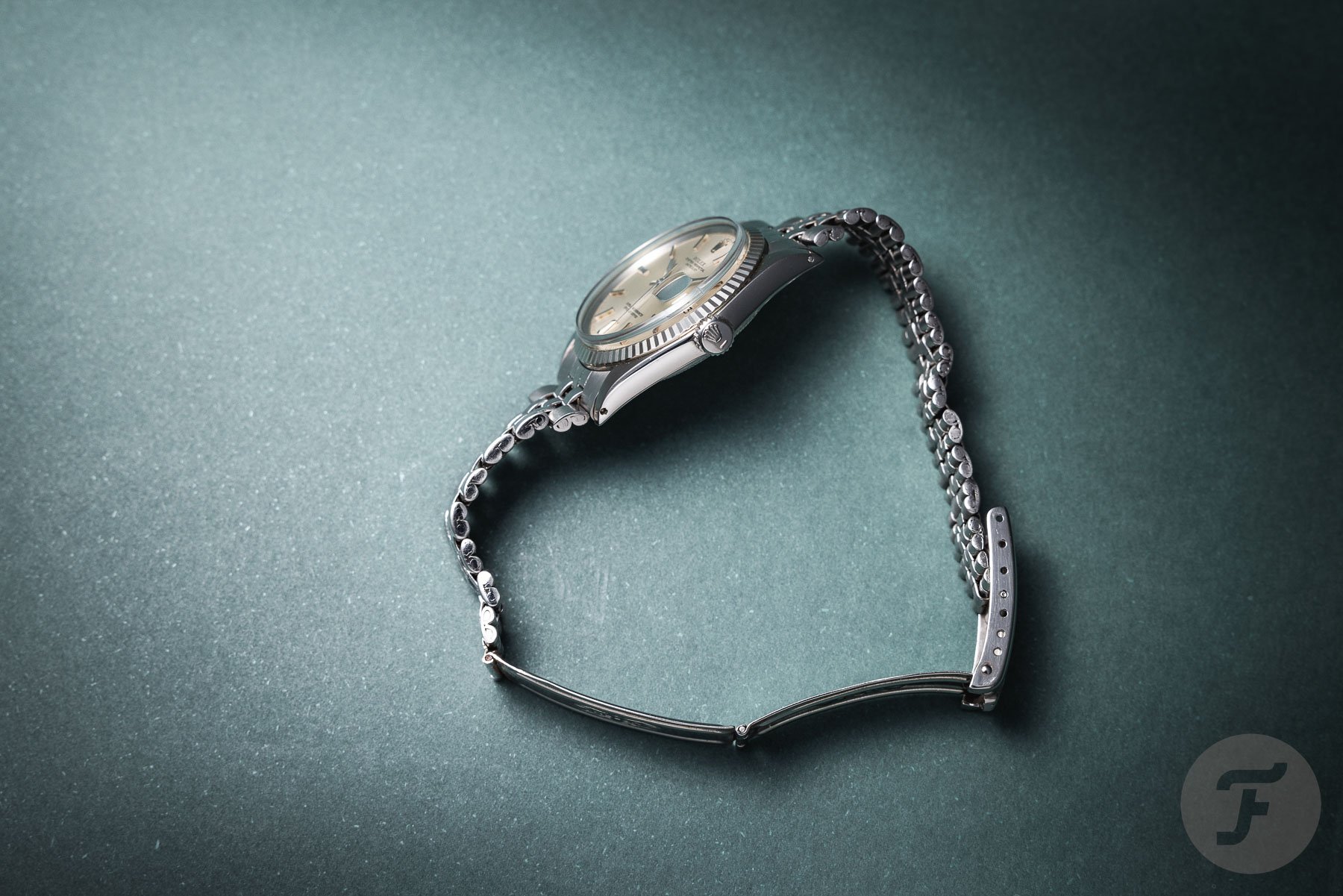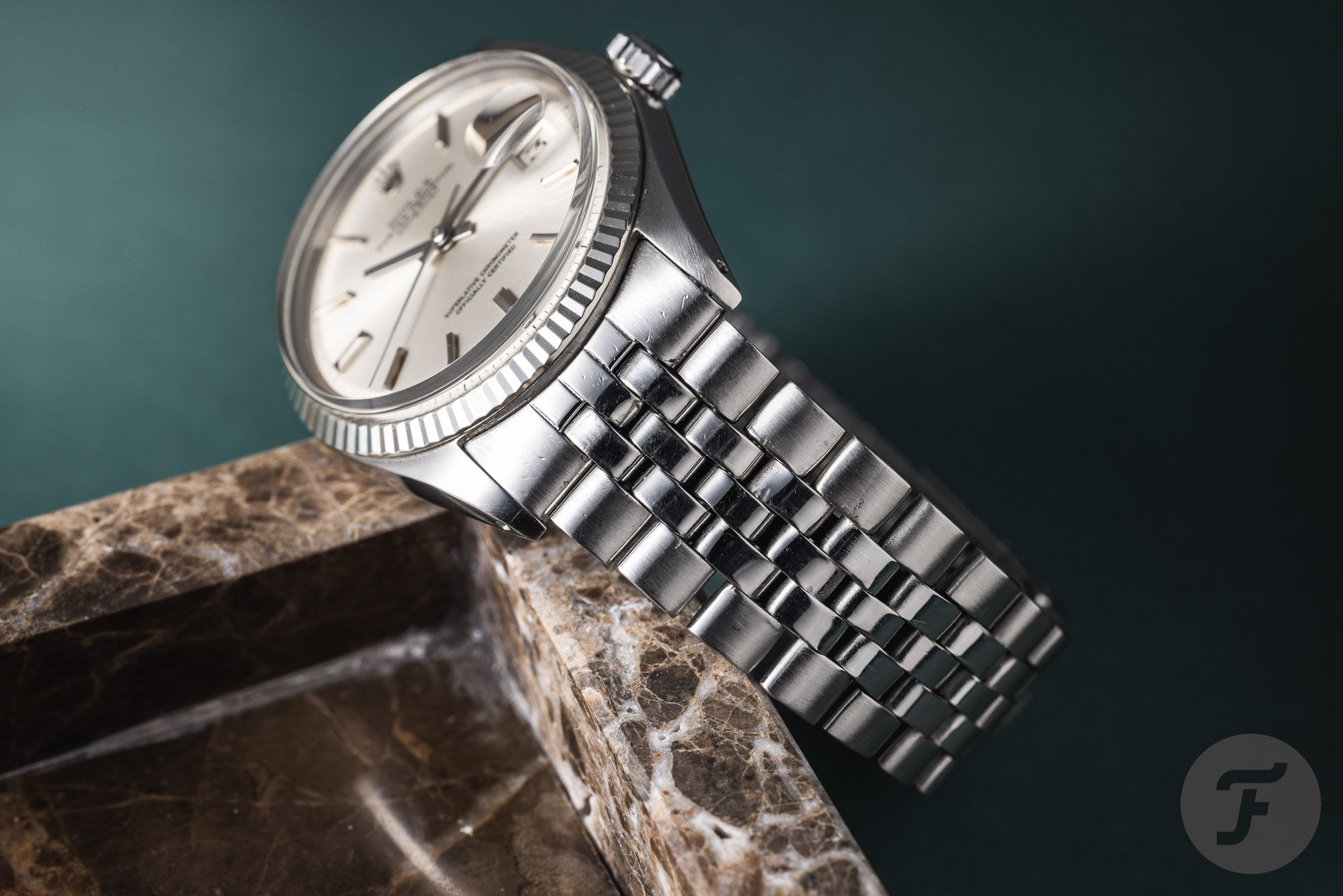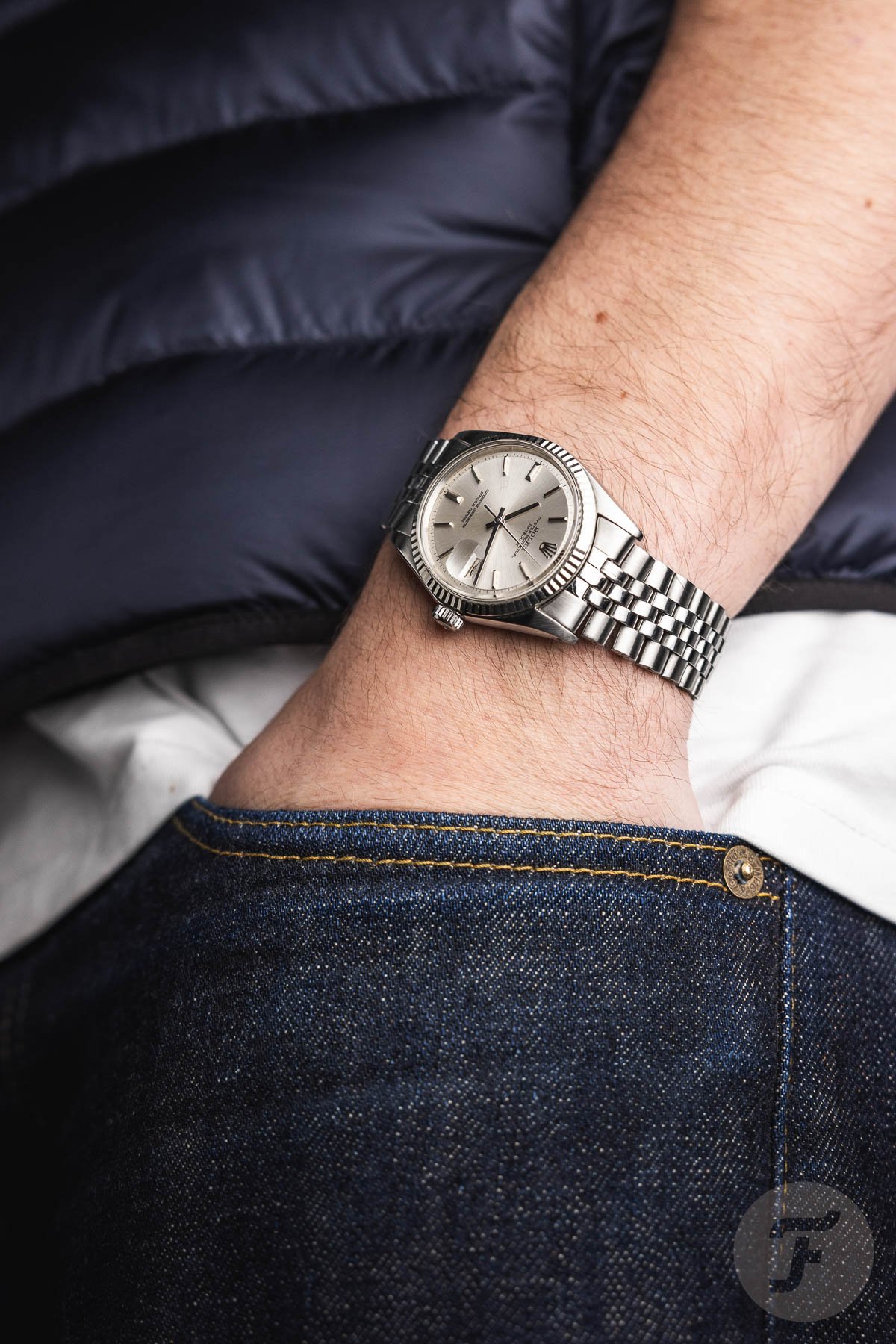Exploring Evergreens: Rolex Datejust 36mm Ref. 1601
In this edition of Exploring Evergreens, I am covering the Rolex Datejust ref. 1601. This is a watch that is very dear to me as it represents one of my professional milestones. But even without that sentimental value, it is one of the greatest watch designs of all time to me. The Cyclops, the fluted bezel, and the Jubilee bracelet have all become archetypes — often faked, never bettered. Let’s have a closer look at the evergreen that is the Rolex Datejust ref. 1601. Does it still hold up today?
The Rolex Datejust ref. 1601, in case you aren’t familiar, is characterized by its non-quickset caliber, pie-pan dial, and fluted bezel in (white) gold. My particular specimen comes on a Jubilee bracelet, but you can find them on Oyster bracelets as well.
Some context for the Rolex Datejust ref. 1601
The Rolex Datejust ref. 1601 was introduced in 1959. The Datejust had been around since 1945 and had undergone several updates. It all started with the reference 4467 in 1945. Rolex considered calling it the Rolex Victory after WWII but felt that name was too charged. The more factual “Datejust” was chosen but wouldn’t appear on any dials until 1953.
In these first years, the Datejust was still evolving into its now-iconic shape. The 4xxx and 5xxx generations still featured bubble-back cases, for instance. The more familiar Oyster shape came with the 16xx predecessor, the 6xxx generation. This was also when the Cyclops first appeared. The Datejust was the flagship of the Rolex collection, first available in precious metals only. Remember, the Day-Date wouldn’t come out before the Datejust was over a decade old.
In 1959, Rolex introduced the 16xx generation. Early models still featured alpha hands and ornate arrow hour markers. These would soon morph into the now-archetypal baton hands and simpler indices. Once these changes were made, the Datejust took on the shape it would largely retain until today. In short, then, the 16xx generation is when the Datejust became the Datejust we know and love today.
The 1565 and 1575 calibers in the Rolex Datejust ref. 1601
When the Rolex Datejust ref. 1601 and its sibling references debuted, they came with a then-brand-new movement. Caliber 1565, produced by Aegler, had a 42-hour power reserve and ran at an 18,000vph frequency. Characteristically, there was no quickset mechanism for the date just yet. The new caliber did feature KIF shock absorption.
Caliber 1575 would follow in 1965. The new version had a higher 19,800vph beat rate. In 1972, a hacking function was added without changing the caliber’s name. Still, there was no quickset date. This would come in 1977, with the introduction of the 16xxx references, the first so-called five-digit Datejust.
It is quite common for Datejust calibers to be marked “1560” or “1570.” Technically, these numbers refer to non-date versions of the calibers. However, Rolex often used the same number-engraved plates across the entire movement family.
The professional significance for me
As I mentioned in the opening paragraph, the Datejust has professional significance for me. As you may know, I used to work as a vintage dealer at Amsterdam Watch Company. There, I quickly noticed the extreme popularity of vintage Datejusts among enthusiasts. Then I found that there was no good reference book on the vintage Rolex Datejust yet, so I decided to write it myself.
I spent 14 months researching, doing photography, putting Datejusts under the microscope, and, crucially, writing. I crowdfunded the graphic design and production of The Vintage Rolex Datejust Buyer’s & Collector’s Guide and published it myself in 2022. Since then, I have sold out the first print of 1,000 books. Only AWCo still has a handful left, and I am contemplating what to do next. Since I have started another time-intensive endeavor, I don’t want to do it myself again. Perhaps I will look to have it published externally at some point to do a second print.
Whatever the future brings, the book has been a major highlight in my career so far. I had dabbled in entrepreneurship before, never with great success. The book was the first project I initiated that truly had something of an impact within its small niche. It is a humble accomplishment but one that I cherish. It inspired me to think a little bit bigger with later projects.
Could the Rolex Datejust ref. 1601 be the ultimate DJ?
I acquired my Datejust while writing the book. Mine is the 1601 you see in the images here. It is also the cover model of the book, making it rather special to me. It was quite clear that it would be this precise reference that I would buy. I feel this is the archetypal Datejust, the iconic model within an overall iconic range. This is due to the combination of the Jubilee bracelet (which, granted, isn’t specific to this reference), the fluted white gold bezel, and the pie-pan dial.
The latter makes all the difference to me. The later five-digit Datejust generations would discard the stepped dial in favor of a flat one. To me, those always look a bit naked in comparison to the earlier stepped ones. Speaking of naked, mine doesn’t have any tritium on the dial and handset. This is often referred to as a “Japan dial” as it was produced for countries with import bans on radioactive materials, such as Japan. Interestingly, Rolex did use the same printed dials, as these do feature a “T Swiss T” signature.
Keen observers will notice a mismatch in mine. The bracelet, although period-correct, isn’t geographically correct. These folded Jubilee bracelets with the crown sticking out from the clasp were for the US market. Still, to me, this combination, especially with a silver sunburst dial, is the pure Datejust. I gladly forfeit a quickset date to have a pie-pan dial, which is possibly where others are most likely to disagree.
How does it hold up today?
Now, a watch can only be an evergreen if it still holds up today. In the case of the Rolex Datejust ref. 1601, I feel we may need to split that into two parts — the design and the execution. In terms of design, I feel this watch has aged extremely well. The current Datejust even looks just like it. It is one of the most copied watch designs out there and for good reason.
In terms of execution, this is very much a vintage watch. Mine dates back to around 1967, and you can feel that. It is light and jingly-jangly, and it feels a bit delicate. Truthfully, it is still very much capable of handling daily abuse. This is no safe queen, but it doesn’t provide the reassuring, solid feel that more recent watches do. Can you still wear one every day? Sure, but do so with some care and mindfulness.
There is also plenty to choose from. There are tons of variations within the 16xx generation. And, if you prefer a quickset date, you can get a later 16xxx model. If you want a more solid neo-vintage feel, get the first sapphire generation, 162xx. After that, they got fatter cases with polished lugs, which is where I lost interest. I think the apex of Rolex Datejust history lies somewhere in this 16xx–162xx era.
Closing thoughts
The Rolex Datejust surely deserves a spot in the top 10 greatest watches of all time. Whether you like it or not, it has been a genre-defining template for later watches. The fact that its design has lasted for nearly 80 years (jubilee coming up next year), undergoing only minor updates, says a lot.
What do you think of the Rolex Datejust ref. 1601? And which version would you pick? Let us know in the comments below.

